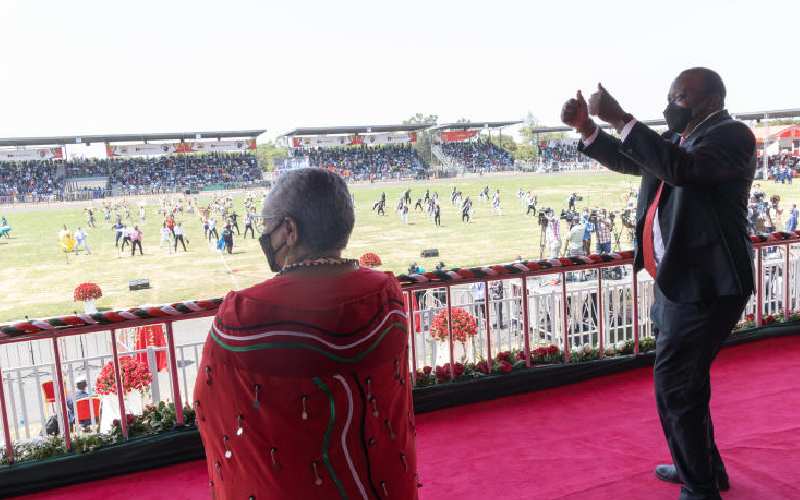×
The Standard e-Paper
Home To Bold Columnists

President Uhuru Kenyatta and First Lady Margaret Kenyatta follow proceedings during the 58th Madaraka Day Celebrations at the new Jomo Kenyatta International Stadium in Kisumu County.[PSCU]
A Lofty 58th Madaraka speech, but there is dubiety on the supporting economic evidence